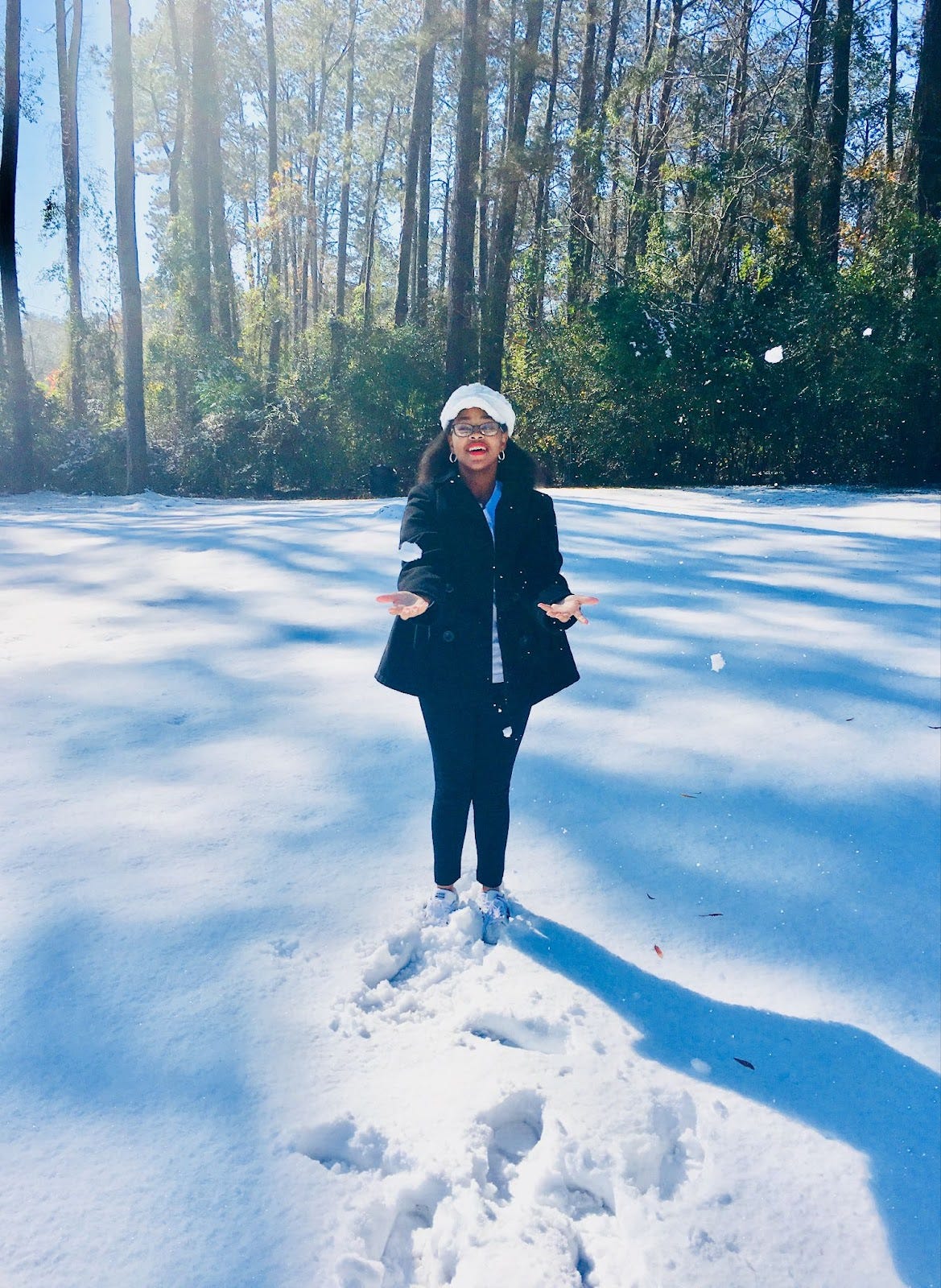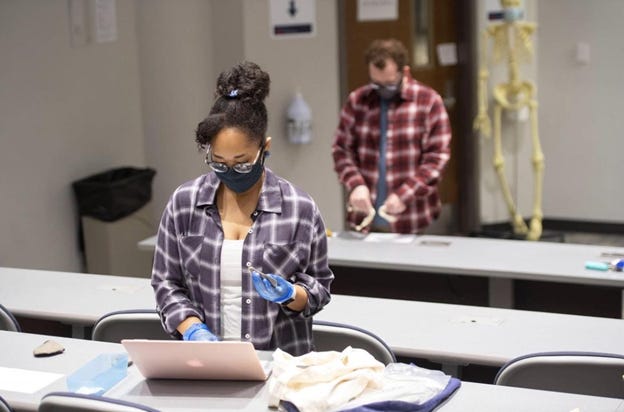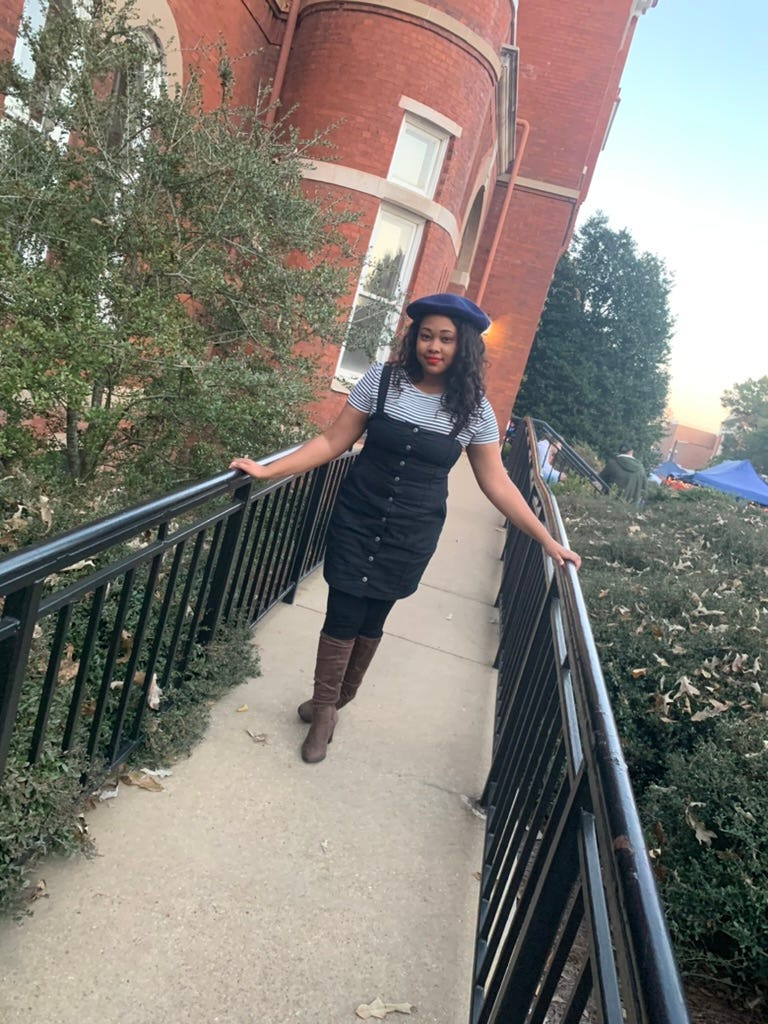Mississippi Expat: MyKayla Williamson
"When I am away from Mississippi and I see pine trees or ornate magnolias, I become giddy with joy that the soil I am on can sustain some of the things I love."
What does it mean to call Mississippi home? Why do people choose to leave or live in this weird, wonderful, and sometimes infuriating place? Originally from the Pine Belt region of Mississippi, MyKayla Williamson left the state for graduate school. She earned a Master of Arts in Archaeology at Cornell University, where she also received training in historic preservation and planning. MyKayla is now a doctoral candidate at Stanford University, where she researches narratives and experiences of hidden and marginalized voices, particularly those of the African diaspora. In her interview, MyKayla writes: “Coming from a small town in Mississippi allowed me early on to understand what it means to be myself…Although not all of Mississippi is rural, it is the state’s rurality that allowed me to be able to curate who I am based solely on my own interests. ” Today MyKayla shares what keeps her rooted to Mississippi even while fostering a career that takes her far from home.
Where are you from?
I was born and raised in the Pine Belt town of Waynesboro, Mississippi.
When did you move to California and why did you move there?
After living in Ithaca, New York, for two years for school, I have just moved near San Jose, California. I’ve moved to do research and earn a Doctoral degree in anthropology at Stanford University.
When I am away from Mississippi and I see pine trees or ornate magnolias, I become giddy with joy that the soil I am on can sustain some of the things I love.
What does “home” mean to you? How does Mississippi fit into that definition?
Mississippi is the foundation of my definition of home. When I am away from Mississippi and I see pine trees or ornate magnolias, I become giddy with joy that the soil I am on can sustain some of the things I love. Home is someone, often a stranger, waving at you from a front porch as you cruise aimlessly by. Home is where folks can smell much-needed rain and feel weather coming in their bones. Home is where my grandmothers’ bones rest. Home is a place where you can always return to as you stretch your wings out in the world; it is where you can both grow and be grounded.
What do you miss most about Mississippi?
I miss being able to have conversations with just about anyone. So many people up North and out West are always caught up in the helter-skelter of both the world and themselves. Folks in Mississippi will turn to you and talk about how the price of a product you’re both looking at in the store has “shot up.” You can really be reminded that it is not just you in the world feeling and doing things when you bond with a stranger over “sky high” groceries. I also miss being able to find certain canned goods, like the Prairie Belt canned smoked sausages.
We are not the apex of what is “wrong” in America, we are the epitome of coexistence. Understand that we are lawyers and engineers. Believe that we are writers and poets. Know that we are community organizers and teachers. Watch us travel the world and still select Mississippi to be the place where our bones will find refuge and solace.
How have you cultivated community in California? Do you still feel rooted to Mississippi?
Mississippi is my tree of life; I will always be rooted there. Both sets of my maternal and paternal grandparents are at rest there. It is the only dirt that will ever truly cover me. But whilst I’m not there, I do seek community. I find that in Mississippi people bond over the smallest of things. We are cognizant that there truly isn’t much that separates us from each other. Community outside of home is usually cultivated from a formula of proximity, interests, and time.
What’s the weirdest question or assumption you’ve encountered about Mississippi (or about you as a Mississippian) by someone who’s never been there?
I find that people approach me with statements about Mississippi, or to seek confirmation about some random article or statistic that they happened to come across. They say Mississippi is “X” or ranked last in “Y,” but rarely is someone trying to actually gain understanding of the state. Unless they are a football fan, people assume I am where I am seeking asylum from my home state. I’ve even caught such assumptions coming from other southerners, as if no matter how “dirty” the statistics about their state become, there is always Mississippi mud to cover it up. Mississippi is not a Hail Mary for what is perceived as a shortcoming for another state. Mississippi is more of God’s case study on the ultimate underdog, if you will. We, as people, come out on top—with icing on the cake, too.
How has being from Mississippi affected your identity and your life’s path?
Coming from a small town in Mississippi allowed me early on to understand what it means to be myself. I did not have the influence of cities like Atlanta or New Orleans and their metropolitan trends as a young child in a smaller, rural area. Although not all of Mississippi is rural, it is the state’s rurality that allowed me to be able to curate who I am based solely on my own interests.
People assume I am where I am seeking asylum from my home state. I’ve even caught such assumptions coming from other southerners, as if no matter how “dirty” the statistics about their state become, there is always Mississippi mud to cover it up.
What is something that you’ve come to understand about Mississippi by living elsewhere?
There is no issue that exists only within Mississippi. Viewing the issues of other areas and how they are handled will give you hope and perspective of how to improve your home.
Have you ever thought about moving back? What would need to happen in order for you to move back to Mississippi?
As an archaeologist, I want my work to exist in Mississippi. To date, I have excavated in places like St. Croix, U.S. Virgin Islands and St. Augustine, Florida. I am interested in facets of the African Diaspora as they exist throughout multiple landscapes, but excavating in Mississippi is my goal. Moreover, I would move back to Mississippi in order to teach at a university there. I would also take an appointment outside of academia that concerns cultural resources and their management. As I am open to living anywhere, my intellectual concern does reside in the Deep South, especially Mississippi.

What do you wish the rest of the country understood about Mississippi?
Mississippi is as complex as her River is long. The state, and her people, are not monoliths. We are not the apex of what is “wrong” in America, we are the epitome of coexistence. Understand that we are lawyers and engineers. Believe that we are writers and poets. Know that we are community organizers and teachers. Watch us travel the world and still select Mississippi to be the place where our bones will find refuge and solace.
Is there a Mississippi change-maker who you think everyone needs to know about?
The impact of one person can be seen through the life of Oseola McCarty, a woman whose story everyone should know. She was a washerwoman from Hattiesburg, Mississippi, who lived a humble life and saved. What makes her remarkable is that she donated $150,000 of her life savings to the University of Southern Mississippi to fund scholarships for deserving students. One of her most memorable quotes is, ‘If you want to be proud of yourself, you’ve got to do things you can be proud of.’ Her generosity and selflessness are a true testament to the power of one individual’s impact; her legacy continues to inspire me as a scholar.
Home is where folks can smell much-needed rain and feel weather coming in their bones. Home is where my grandmothers’ bones rest.
If you had one billion dollars to invest in Mississippi, how would you spend your money?
If I had one billion dollars to invest in Mississippi, I’d focus on using that money to make a lasting difference for as many people as possible. A billion dollars is essentially a thousand sets of a million dollars, so I’d ask myself: how can I use those millions in ways that benefit the three million people living in the state?
First, I’d invest in affordable housing in towns with universities like Oxford, Hattiesburg, and Jackson. The housing would be for full-time students from Mississippi, with rent priced below the average for the area. To help renters in the long run, paying rent on time would contribute to building their credit, setting them up for future financial success.
Next, I’d set aside several million to create a school for doula training. My interest in midwifery comes from my own research, and I’ll never forget the joy on my mom’s face when she saw the name of the midwife who delivered her on her birth certificate. Offering training and medical support for community midwives could help bring back the strong tradition of community-based birthing care that was once so common in Mississippi.
I’d also invest in real estate—both residential and commercial. I’d build two hotels and conference centers, one in Jackson and one on the Coast, to attract more events and visitors to the state. Additionally, I’d construct luxury high-rise apartments in the larger cities, giving professionals moving to Mississippi a modern, upscale place to live. These buildings would include restaurants, shops, and services like healthcare, grocery stores, and childcare, benefiting not just residents but the wider community.
Overall, the goal would be to make this billion dollars work for the people of Mississippi long-term, creating opportunities and a cash flow that keeps giving back to the community.
What or who do you want to shamelessly promote? (It can absolutely be a project you’re working on, or something you are involved in.)
First, I’d tell everyone to follow my PhD journey on Instagram @KaylaTheArchaeologist.
Next, I shamelessly promote my forthcoming chapter, tentatively Mississippi Mud: Statues as Cementations of Legacy in the Magnolia State, which will be part of the publisher Routledge within the book collection on Restorative Justice in Heritage Studies and Archaeology. My chapter in the book explores the legacies of Black women in Mississippi through statues and monuments, and I hope it sparks important conversations about history and representation. It’s expected to be published by Spring 2026, and I would love to see it used in classrooms in Mississippi.








As a woman in my late fifties I relish reading the words of a younger person with the world at their feet and knowing the impact they will have on the generations behind me. Truly wonderful.
Bonjour je souhaite venir en vacance au mississipi, j'aimerais savoir s'il ya des familles d'accueil